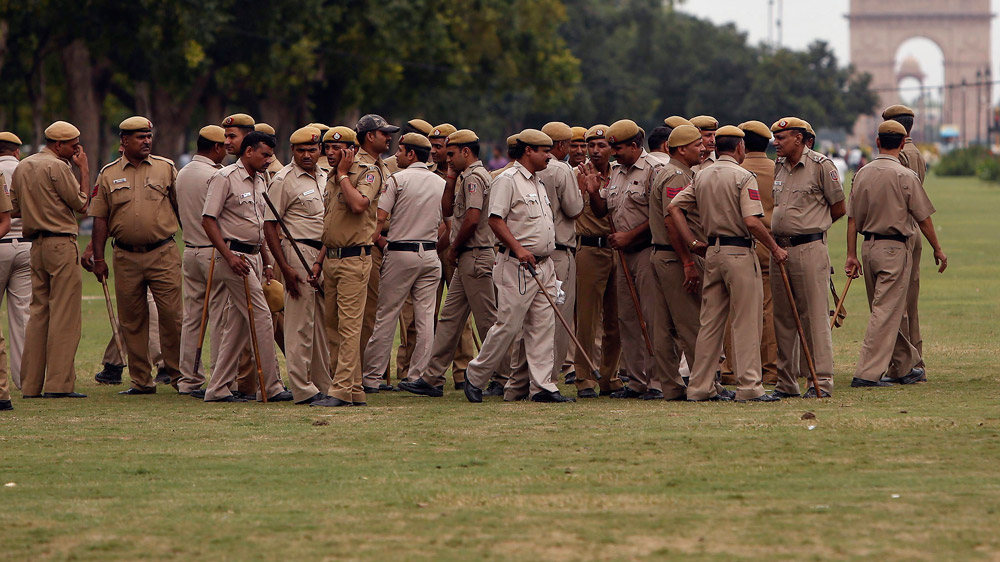The police personnel in India may soon be required to respect the privacy of individuals by not making public any information which may come to their knowledge in the course of an investigation. Also, there may soon be a bar on parading before the public any person in custody.
Further, media briefing may also be restricted to be conducted only by officers authorised by the state or district police chief and only in exceptional cases where these are necessary for the purpose of preventing any crime or detecting any offence, dispelling any rumour or enhancing public confidence and security.
All these proposals are part of a draft Model Police Bill 2015 finalised by the Bureau of Police Research and Development (BPR&D) under the Ministry of Home Affairs along with Model Police (Village Guards and Defence Parties) Rules and Model Police (Training and Support Facilities) Rules.
The bill has been drafted on the recommendations of a committee and inputs from a legal firm. Though the draft bill does not reflect the views of government, according to the BPR&D “a view will be taken on the draft and its various provisions by the government after receiving public comments.”
Police Duties
Among the other important proposals in the draft are those pertaining to police duties. It states that “when in uniform, all police officers exercising authority under this Act shall exhibit the badges of identity in such manner as to be easily visible” and “if discharging duties while not in uniform, all police officers shall show on demand such identity badge.” The move assumes significance as often corrupt police personnel move around without their badges on.
The draft seeks greater public-police interaction and calls for constitution of a community liaison group by the district police chief for each police station. It would comprise respectable local residents “of good character”, as representatives of the community, to advice the police in their functioning with relation to local matters.
Draft Model Police Bill, 2015
- Police personnel would be
required to respect the privacy of individuals by not making public any
information they gather during the course of an investigation
- The draft seeks greater
public-police interaction and calls for constitution of a community liaison
group
- The draft bill seeks to strike a balance by
suggesting improved insurance cover, allowances and medical facilities for
police personnel
- In order to improve the accountability, the draft has suggested
establishing a Police Accountability Commission for states
Community Policing
For taking the public on board in policing matter, the draft states that “the community liaison groups (CLG) will identify the policing needs of the area, which will be taken into consideration by the district police chief while preparing policing strategy and giving inputs.”
The CLG will meet at least once every quarter and its meetings would be attended by the officer-in-charge of the police station and the circle inspector, and whenever possible by the sub-divisional police officer.
For maintenance of order and prevention of danger and nuisance in public places, the draft has proposed that the district police chief would be empowered to issue an order that prohibits carrying in any public fire-arms, swords, spears, bludgeons, knives or other weapons of offence; collecting or carrying stones or missiles or any other objects or means of casting missiles; and any act which is reasonably apprehended to occasion or instigate a riot, or lead to disaffection amongst communities.
Always on Duty
The proposed bill also notes that a police officer would be always deemed to be on duty. “Every officer not on leave or under suspension, shall, for all purposes of this Act, be considered to be always on duty and may at any time be deployed in any part of the state,” the draft bill says.
While prescribing stringent working standards and conditions for the police personnel, the draft bill also seeks to strike a balance by suggesting improved insurance cover, allowances and medical facilities for them.
Further, it calls for a risk allowance for “police officers posted in special wings, including counter-terrorism operations units, bomb disposal squads, commando groups and other hazardous duties”.
Stress Management
To help police personnel cope with professional stress, the draft has suggested facilities for stress management, including psychological counselling, in all police units and establishments.
Finally, to improve the accountability and thereby to curb corruption and atrocities, the draft has suggested establishing a Police Accountability Commission for states and a District Police Accountability Authority for every police district, comprising chairpersons and members with credible record of integrity and commitment to human rights.
(The writer is a Delhi-based freelance journalist)
(At The Quint, we question everything. Play an active role in shaping our journalism by becoming a member today.)
